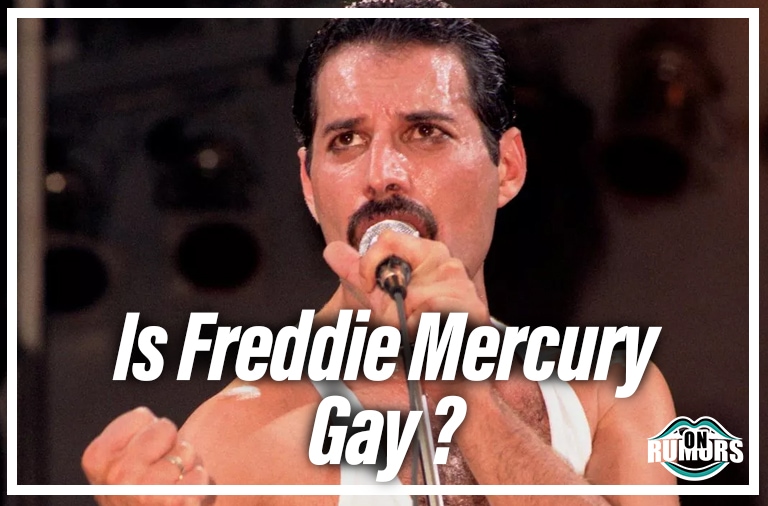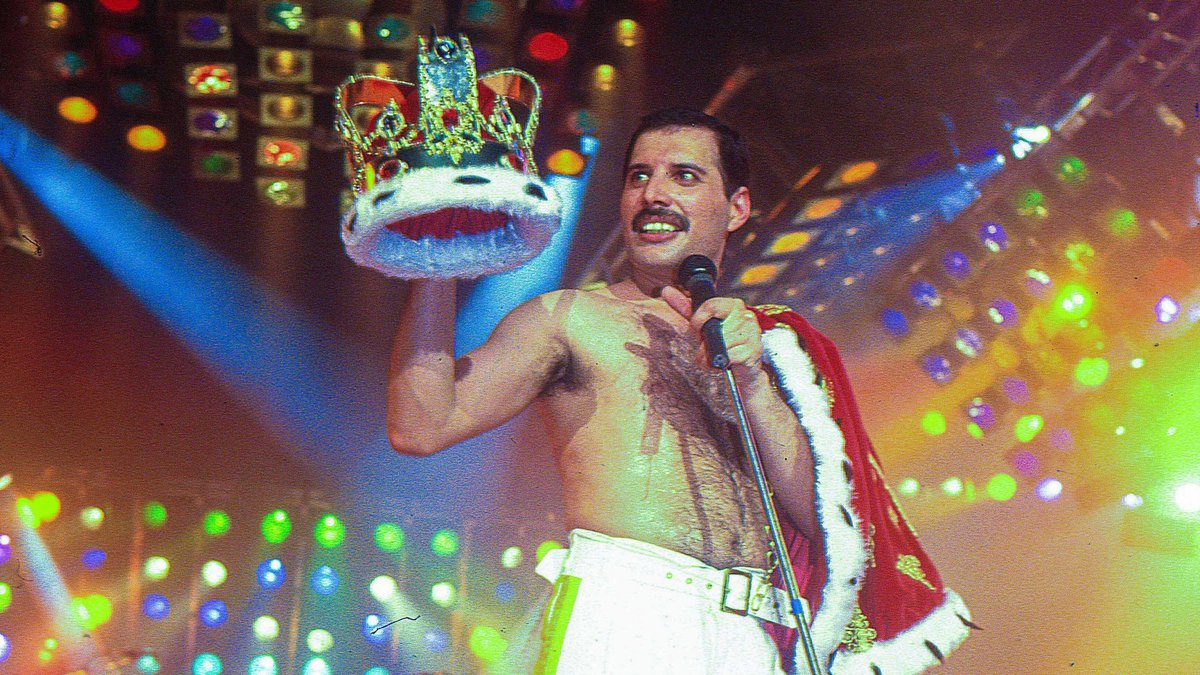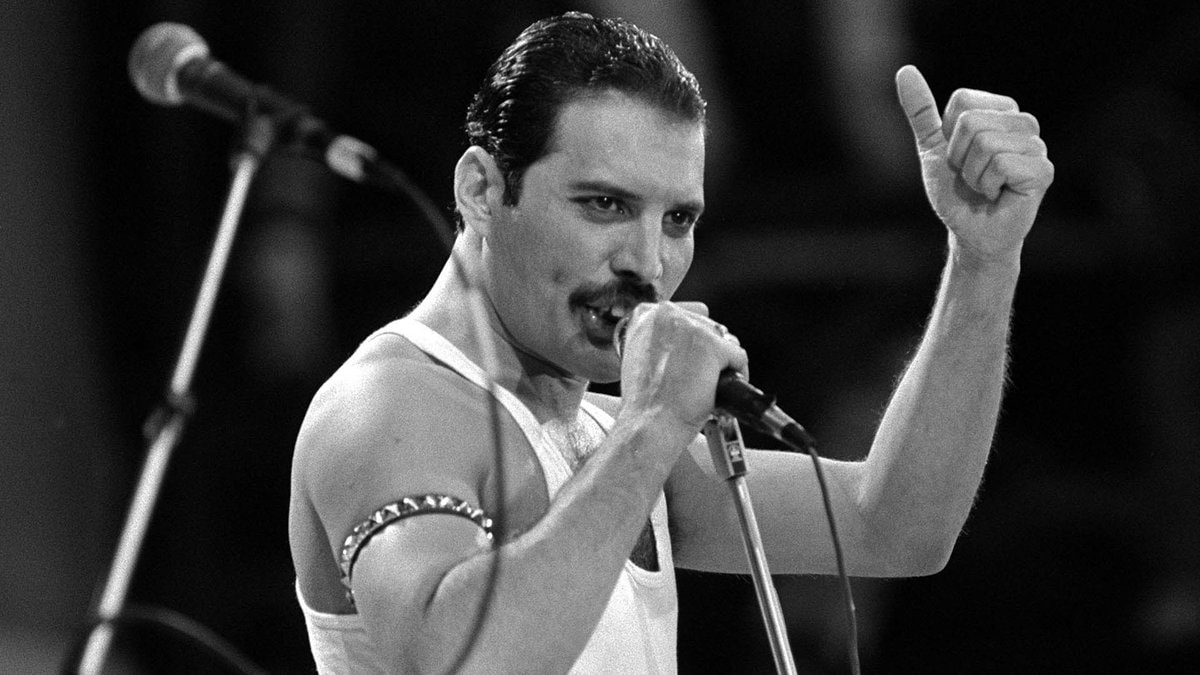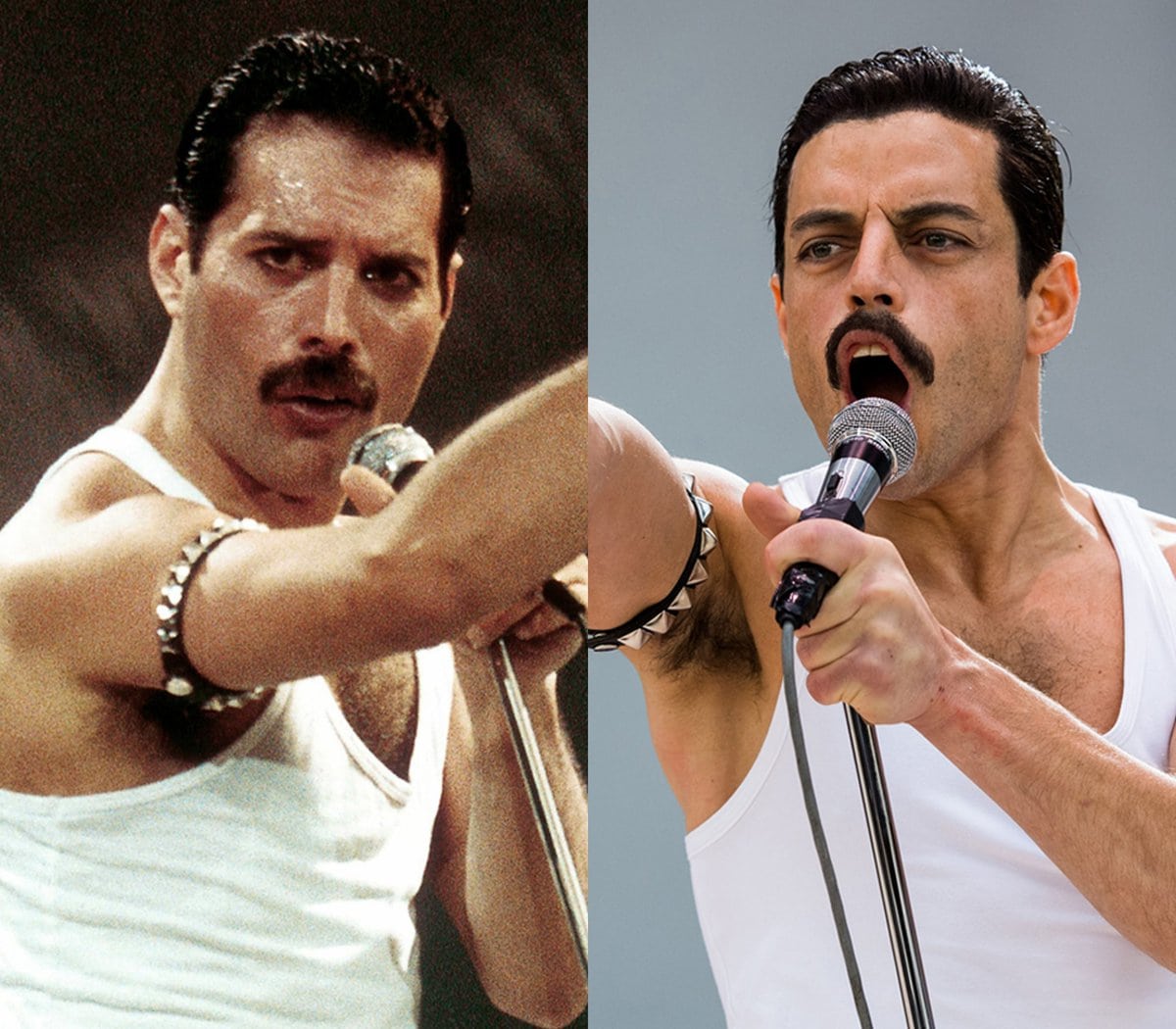Have you ever scratched your head, wondering about the legendary Freddie Mercury’s sexuality? It’s no secret that the Queen icon was a master of musical and personal mystique. Today, we’re digging into the vibrant and complex world of Freddie’s life, peeling back layers to understand his journey.
Ready to dive into a tale of rock ‘n’ roll and revelations? Keep reading, it’s going to get intriguing!
Freddie Mercury kept his sexuality private from his family but dated both men and women openly. He didn’t want to label himself as gay or bisexual. He had strong relationships with Mary Austin and Jim Hutton, showing he loved deeply regardless of gender.
Bio Details
| Full Name | Farrokh Bulsara |
| Date of Birth | September 5, 1946 |
| Place of Birth | Stone Town, Sultanate of Zanzibar |
| Partners | Mary Austin (1970–1976)
Jim Hutton (1985–1991) |
| Died | November 24, 1991 (aged 45)
Kensington, London, England |
| Net worth | $50 million (1991) |
Freddie Mercury’s Conflicting Sexuality
Freddie Mercury’s sexuality was complex and often conflicted, as he hid it from his family while openly dating both men and women. His relationships with Mary Austin and Jim Hutton reflect his exploration of gender boundaries as a rock star.
Even after his AIDS diagnosis, he refused to label his sexuality, adding to the complexity of his personal life.
Openly dated both men and women
Freddie Mercury kept a big secret from his family – his true sexual orientation. He lived in a time when being gay wasn’t something people talked about much, especially not with their families.
But on stage and in his personal life, he didn’t hide who he was attracted to. Men, women, it didn’t matter; Freddie dated who he wanted.
While keeping his love life away from family eyes, the rock legend broke social rules without fear. Dating guys and girls alike, Freddie never felt the need to explain himself or fit into neat boxes like “gay” or “bi.”
Exploration of gender boundaries
Freddie Mercury really shook things up as a rock star. He would wear wild costumes and act in ways that most men at the time didn’t. His clothes could be super fancy or really simple, and he wasn’t afraid to look more like a woman sometimes.
This was his way of playing with what people thought were “rules” for how guys should look. You could see him in tight pants one day and a crown the next, always keeping fans guessing.
On stage, Mercury’s bold style made everyone talk about gender fluidity. He showed that masculinity and femininity could mix together in rock music. In fact, it made the tunes even cooler! Lots of folks felt free to be themselves because Mercury said it was okay not to pick just one box when it came to being a man or woman – or anything else you wanted!
Relationship with Mary Austin
Freddie Mercury and Mary Austin shared a deep love that went beyond the usual. They lived together, got engaged, and for a long time, she was his significant other. Their bond was strong even after Freddie realized he loved men too.
He trusted her with his life.
Mary knew him better than anyone else and understood his feelings before he did. Despite their romantic relationship lasting only 6 years, she stayed close to him until the very end – true friendship never dies.
Relationship with Jim Hutton
Moving on from Freddie Mercury’s relationship with Mary Austin, the singer had a significant romantic involvement with Jim Hutton. Their intimate relationship developed during the 1980s and became an emotional connection that added complexity to Freddie Mercury’s personal life.
Jim Hutton, a regular man from Ireland, fell in love with Freddie, contributing to the multifaceted nature of the singer’s sexual orientation. This romantic partnership is noteworthy when studying Freddie Mercury’s personal life and his impact on LGBTQ+ representation in music.
Their love affair lasted for 6 years, shaping a significant aspect of Freddie Mercury’s personal life and adding depth to his complicated sexuality. As part of the key points concerning personal relationships, their same-sex relationship provides insight into the intricacies of Freddie Mercury’s romantic involvements and contributes to understanding his intimate connections beyond traditional gender boundaries.
Refusal to label his sexuality even after AIDS diagnosis
Freddie Mercury never put a label on his sexuality, even when he was diagnosed with AIDS. Despite public speculation and concern, Mercury chose not to publicly identify as gay or bisexual during his interviews and performances.
This refusal to conform to societal expectations added layers of complexity to his personal life and legacy, contributing to ongoing conversations about sexual identity and the stigma surrounding homosexuality.
Many worried about the superstar’s sexual orientation, which he refused to openly discuss despite his status in the music industry. The lack of a clear label for Mercury’s sexuality has led to ongoing discussions about sexual identity in both LGBTQ+ communities and mainstream society. It all makes him an enigmatic figure whose impact extends far beyond his musical legacy.
How “Bohemian Rhapsody” Struggled to Capture the True Story of Freddie Mercury’s Sexuality
“Bohemian Rhapsody” faced backlash for its depiction of Freddie Mercury’s sexuality, with critics arguing that the film didn’t fully grasp his bisexuality. There are discussions about how the tensions of gay life in the 1980s, including government and societal pressures, weren’t thoroughly explored.
Some have debated the real story behind Freddie Mercury and Queen’s portrayal in “Bohemian Rhapsody,” leading to a wider debate about the accuracy of the biopic.
The film has sparked critiques over its struggle to accurately capture the true story of Freddie Mercury’s sexuality, raising questions about understanding his bisexuality and depicting gay life in that era.
Criticism from both fans and the LGBTQ+ community
Fans and the LGBTQ+ community have criticized “Bohemian Rhapsody” for downplaying Freddie Mercury’s bisexuality, which many believe is an essential aspect of his identity. The film has faced allegations of homophobia, with critics arguing that it inaccurately portrayed Mercury’s complex sexuality.
Even before its release, concerns were raised about how the movie would handle this aspect of Mercury’s life, leading to ongoing criticism from both fans and the LGBTQ+ community.
Many Twitter users have also condemned certain scenes in the film for glossing over or neglecting Mercury’s bisexuality, sparking further backlash from fans and LGBTQ+ advocates.
Queen’s Influence and Support for the LGBTQ+ Community
Freddie Mercury’s impact on diversity and acceptance through music is an essential part of Queen’s legacy. His unapologetic expression of his sexuality and gender fluidity challenged stereotypes and inspired LGBTQ+ representation in the music industry.
Through their songs, Queen conveyed messages of inclusivity, equality, and empowerment, becoming a source of pride and advocacy for the LGBTQ+ community. Freddie Mercury’s personal journey in discovering his sexual identity resonates through the band’s support for LGBTQ+ rights, leaving a lasting impression on both fans and fellow musicians.
Mercury’s sexuality had a profound impact on the Queen’s image, embracing diversity and challenging norms. His refusal to be labeled resonated with fans globally. This defiance against conformity solidified the band’s influence and recognition in advocating for LGBTQ+ rights, creating an empowering legacy.
Freddie Mercury openly defied stereotypes and pushed boundaries with his fluid sexuality, openly dating both men and women. His boldness broke barriers in the music industry and challenged conventional norms associated with LGBTQ+ representation.
Our Final Thoughts on Freddie Mercury’s Sexuality
In conclusion, Freddie Mercury’s fluid sexuality remains a subject of speculation and debate even after his passing. Queen’s impact on the LGBTQ+ community has been significant, reflecting the band’s celebration of diversity through their music.
Despite the controversies surrounding his portrayal in “Bohemian Rhapsody,” Freddie Mercury continues to inspire and challenge stereotypes regarding sexual orientation in the music industry.
His legacy serves as a reminder of the importance of acceptance and representation for all people.




